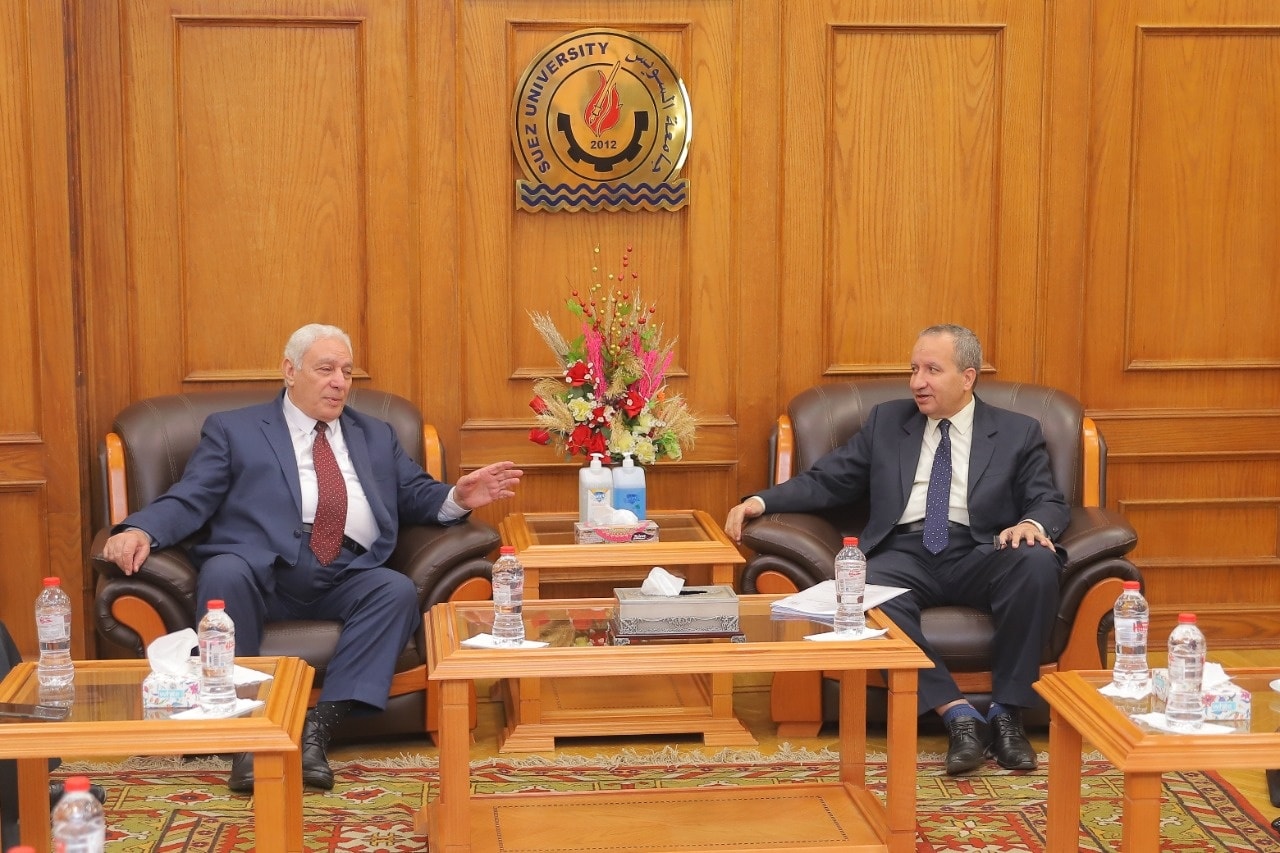As part of the Association of Islamic Universities' vigorous efforts to protect Arab and Islamic youth and spread moderate thought based on tolerance, non-violence, and acceptance of the other. In view of the interest in following up on the global technical developments that have swept through the means of communication and human communication and have created an informational explosion that is becoming difficult to control, Suez University held the first international conference under the title "Religious Awareness of Youth in the Digital Era", in cooperation with the Association of Islamic Universities.
The conference was held under the auspices of Prof. Dr. Mohamed Ayman Ashour, the Minister of Higher Education and Scientific Research, under the supervision of Prof. Dr. Al-Sayed Al-Sharkawi, the SU president, Prof. Dr. Osamaa Al-Abd, the Secretary-General of the Association of Islamic Universities. With the participation of Prof. Dr. Mohammed Mukhtar Juma, the Minister of Endowments, Prof. Dr. Nazeer Mohammad Ayad, the Secretary General of the Islamic Research Foundation, Deputy of the Grand Imam Sheikh of Al-Azhar, Prof. Dr. Amr El-Wardani, the Secretary of the Fatwa and the Director of Training of the Egyptian Fatwa House, Deputy of Prof. Dr. Shawqi Allam Mufti of the Republic, Reverend Armia Makaram, the priest of the St. George's church in Cairo, and member of the General Secretariat of the Family Home, and Prof. Dr. Sami Al-Sharif, Rapporteur of the Information Committee of the Association of Islamic Universities, and a number of professors, deans of mass communication faculties, and researchers interested in media affairs in the Arab world.
In his statement, the president welcomed the attendees and then stressed the importance of the topic of the Conference dealing with the issue of awareness, which is one of the most central issues of concern to all officials in the State. He also explained what was presented by the Minister of Higher Education and Scientific Research to the Higher Council of Universities about the preparation of new educational content on religious tolerance and dialogue ethics, a study on how to address the risks of social media sites, the Ministry's plan to combat extremism and takfiri thought, and the development of curricula that immunize students from the dangers of technology and digital literacy to meet the requirements of the digital era.
The SU president also referred to the University's activities to develop awareness and national affiliation among students and to hold meetings, dialogues, and cultural symposiums on national issues requiring community awareness.
Sharqawi also noted the importance of the topic of the current Conference as a dangerous tool in shaping the public's awareness, especially of the truth of religion.
The conference discussed more than 40 research and interventions (both present and electronic) that covered many diverse areas, covering most areas of digital media and its role in building rational religious consciousness, in the framework of developing youth's awareness and confronting skepticism and advocacy for atheism and non-religion.
As well, Participants in the sessions of the Conference stressed the importance of media work in the digital era, stressing the need for the media to be based on science and not to leave it to amateurs or non-professionals, and that the digital era poses media, communication, and religious challenges that must be confronted by the means and methods of this era, rather than by the means and methods of an earlier era and outdated ideas and faces.
At the conclusion of its work, the Conference made a series of recommendations, including:
* Invite Islamic universities to contribute to the development of an effective strategy for religious communication in the digital era by qualifying employees of civil society and private religious institutions.
* Develop operational plans that integrate the efforts of employees of civil society and government religious institutions to improve religious communication in the digital era.
* In addition to addressing the negative impacts of digital platforms, which have become attractive to the youth and disrupt reform efforts in support of building religious consciousness that protects youth from extremism.
* Integrate official and grassroots efforts and civil society institutions to promote a culture of tolerance among members of society, especially youth's health.

